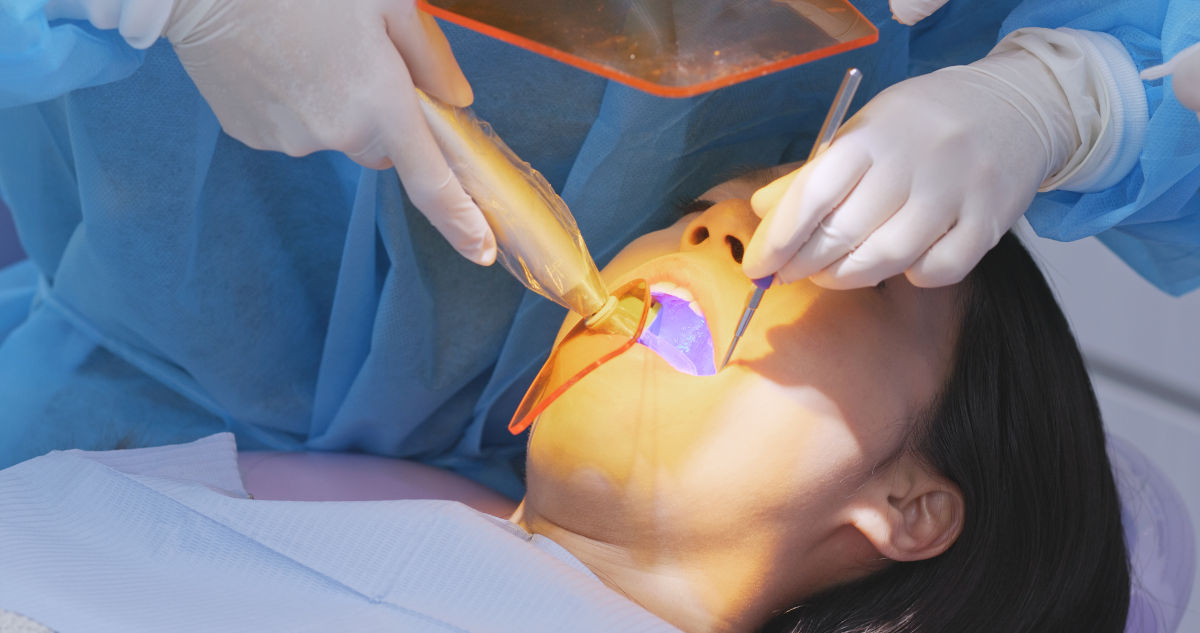Contents

Root Planing and Scaling: The Effective Solution for Periodontitis
Contrary to what its name might suggest, root planing and scaling is not a painful or frightening procedure.
On the contrary, it is a non-surgical technique that effectively treats periodontal diseases by deep cleaning the roots of the teeth.
Discover everything you need to know about this little-known yet highly beneficial procedure for the health of your gums.
What Does Root Planing and Scaling Involve?
Root planing and scaling, also known as deep cleaning or non-surgical curettage, is a periodontics procedure aimed at removing tartar and bacteria present under the gum line, in the periodontal pockets. Its purpose is to disinfect and sanitize the entire periodontium, which includes the supporting tissues of the tooth: the gum, alveolar bone, cementum covering the roots, and the periodontal ligament that connects the tooth to the bone. While a standard dental cleaning is limited to cleaning the teeth above the gum line, scaling goes much further by treating deep-seated lesions. It is performed by a dentist specializing in periodontics, in an operating room under local anesthesia.
How Long Does a Dental Scaling Procedure Take?
Typically, a complete root planing and scaling procedure is carried out in one to four sessions. Each session lasts between 1.5 and 2 hours and consists of two main phases:
- The scaling proper: the periodontist uses specific instruments (curettes) to gently scrape the roots and remove tartar and bacterial toxins. A jet of water and antiseptic rinses the periodontal pockets.
- Disinfection: the gum is treated with a laser or antibacterial gel to eliminate the last bacteria and promote healing.
The local anesthesia makes the procedure completely painless. It is recommended to schedule the sessions closely together (e.g., 2 per week) to prevent bacterial recolonization between appointments. A complete scaling can therefore be completed in about 2-3 weeks.
What Is the Cost of Root Planing and Scaling?
The price of a root planing and scaling procedure averages between $200 and $450 per quadrant. The total cost for the entire mouth can therefore range from $800 to $1,800 or more. This price depends on several factors:
- The severity of the periodontal condition
- The number of sessions required
- The technique used (laser or manual instrumentation)
- The practitioner's reputation
Root planing and scaling is considered a necessary treatment for periodontitis and is typically covered by most dental insurance plans, often at 50-80% after the deductible.
What to Expect After a Dental Scaling Procedure?
After a scaling, it is normal to feel slight gum sensitivity for a few days. Bleeding may also occur but should quickly subside. In case of pain, you can take an over-the-counter pain reliever like acetaminophen or ibuprofen.
To promote healing and prevent a new infection, it is important to:
- Avoid hard, hot, or spicy foods for 24 hours
- Brush your teeth with a very soft brush
- Use a prescribed antiseptic mouthwash
- Do not smoke or consume alcohol for a week
A periodontal check-up will be scheduled 4 to 6 weeks after the end of the treatment to check for proper healing.
What Are the Indications for Root Planing and Scaling?
Scaling is indicated in cases of periodontitis, an inflammatory and infectious disease that progressively destroys the supporting tissues of the tooth. In the presence of periodontal pockets deeper than 3-4 mm, a simple cleaning is no longer sufficient, and a deep scaling is necessary to:
- Eliminate the infection by removing subgingival bacteria and tartar
- Sanitize the roots and restore a smooth surface conducive to healing
- Close the periodontal pockets by promoting gum reattachment
In the majority of cases, scaling combined with good oral hygiene can stop the progression of the disease and stabilize the periodontal condition. But for very severe cases with significant bone destruction, a complementary surgical intervention may be necessary.
How to Prevent Periodontal Disease?
Scaling is an effective solution for treating periodontitis, but it's better to avoid getting to that point! To keep your gums healthy, it is essential to adopt good daily habits:
- Brush your teeth at least twice a day for 2 minutes with a soft brush
- Use dental floss or interdental brushes to clean the spaces between your teeth
- Get a professional cleaning once or twice a year at the dentist
- Eat a balanced diet and limit sugar and snacking
- Quit smoking and moderate your consumption of alcohol and sodas
If despite these efforts, you show signs of gingivitis (red, swollen, bleeding gums), consult a dentist quickly. Caught in time, periodontal disease is very treatable.
Frequently Asked Questions About Root Planing and Scaling
Is Dental Scaling Painful?
No, scaling is performed under local anesthesia, so you will not feel any pain during the procedure. At most, a slight vibration or a sensation of pressure. It is mainly afterward, during healing, that a temporary discomfort may be felt.
What Are the Contraindications for Scaling?
There are very few absolute contraindications to scaling. It may be discouraged in cases of unstable heart disease, use of anticoagulants, or certain cancer treatments. Pregnancy is not a contraindication, but it is preferable to postpone the procedure to the second trimester.
Can You Smoke After a Scaling Procedure?
No, it is strongly recommended to refrain from smoking for at least one week after scaling. Smoking disrupts healing, increases the risk of infection, and promotes the recurrence of periodontal disease.
Do All Dentists Perform Scaling?
While all general dentists are trained to perform scaling and root planing, it is a specialized procedure. It is often performed by periodontists, who have advanced training in treating gum disease. Inquire with your regular dentist, who can guide you.
In conclusion, do not neglect your periodontal health! Prevention is essential, but if periodontitis does develop, do not be afraid to undergo root planing and scaling. It is an effective, controlled, and painless technique to regain healthy gums and keep your teeth for as long as possible.
